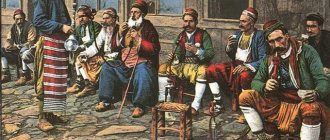Beneficial properties of natural coffee
The concept of natural coffee implies a whole product that has or has not undergone heat treatment. In the first case, they mean green grains, in the second - dark, roasted ones. The difference between them lies in the composition and taste of the drink prepared from them. Green coffee tastes less pleasant, does not have a pronounced coffee aroma, and contains more sourness. But its composition is much richer.
When roasting, each grain loses some of its useful components due to their instability to high temperatures. This applies to some vitamins, micro- and macroelements. And also during roasting, the grain loses water, some essential oils and chlorogenic acid - one of the most valuable components.
What exactly in the composition of roasted grains speaks in favor of the product? This is caffeine, a substance that significantly affects a person’s well-being. It gives a boost of energy, relieves vascular spasms, improves cerebral circulation, and raises blood pressure. Many people prefer to drink a cup of coffee to get rid of headaches rather than resort to pills. The benefits of natural coffee in this case are undeniable, but can turn into harm in case of hypertension.
Chlorogenic acid, which is especially abundant in green coffee beans, promotes weight loss by improving fat metabolism. It stimulates the body to synthesize energy from fat stores in adipose tissue, rather than from glucose, which is quickly formed after eating. This is the main value of the component.
Sweet drink lovers should replace regular sugar with brown sugar
In addition, the calorie content per 100 grams of a natural product is only 200 kcal, and in a cup of the finished drink without sugar, this figure drops to 2 per 100 ml. If you add sugar and milk to it, the figure will increase to a maximum of 20 kcal, which cannot affect the slimness of your figure. The calories in coffee do not come from coffee, but from additional ingredients, so this natural product can be prepared even while on a strict diet.
Dry ground grain contains B vitamins (B1, B2, B9, B5, B6), magnesium, calcium, potassium, phosphorus, iron, sodium, which are involved in many metabolic and regenerative processes. You can talk about the beneficial properties of coffee point by point.
- It is an excellent tonic that gives vigor, stimulates physical and mental activity, relieves fatigue and drowsiness.
- Raises blood pressure, which is important for hypotensive patients.
- Promotes weight loss by accelerating metabolism and the ability to dull appetite.
- Helps cope with depression and improves mood.
- Stimulates the functioning of the cardiovascular system, accelerates blood flow.
- Breaks down cholesterol.
- Prevents the development of type 2 diabetes.
- Prevents Alzheimer's and Parkinson's diseases.
- Improves lung function, increasing the intervals between asthma attacks.
- Prevents the formation of gallstones by 30% and some types of cancer by 15%.
Serotonin – the hormone of happiness, is produced under the influence of coffee
A cup of ground coffee contains a quarter of the body's daily requirement for antioxidants. This means that 2-3 cups a day will help prolong youth, cope with the destructive power of free radicals and simply feel good, even for women during menopause.
The benefits of Turkish coffee
Since Turkish coffee is concentrated, it can provide several health benefits.
Here are 5 reasons to try Turkish coffee.
1. Improves performance in sports
Caffeine is a well-studied, natural stimulant that can enhance athletic and mental performance.
Turkish coffee provides a highly concentrated dose of caffeine, which can be especially beneficial for athletes.
A study of 20 athletes found that participants who consumed caffeinated coffee experienced significant performance benefits, including reaction time and energy levels, compared to those who drank decaffeinated coffee.
2. Contains beneficial compounds
Because this type of coffee is unfiltered, Turkish coffee contains higher levels of beneficial compounds found in traditionally brewed coffee.
Coffee beans contain beneficial compounds such as chlorogenic acids, which are types of polyphenolic antioxidants that provide health benefits.
For example, chlorogenic acids have been shown to reduce inflammation, blood sugar, cholesterol, and high blood pressure.
A study found that coffee made with finely ground coffee beans contained higher amounts of chlorogenic acids than coffee made with large grinders.
Coffee contains other powerful compounds, including terpenoids, which may reduce inflammation, fight infection, and support heart health.
3. May Protect Against Mental Decline
Drinking caffeinated coffee may protect the brain against certain neurological conditions such as Alzheimer's disease.
For example, a review of 11 studies involving more than 29,000 people found that those who consumed more coffee had a 27% lower risk of developing the disease. Source: https://www.ncbi.nlm.nih.gov/pubmed/26944757
Other studies have shown that drinking coffee may reduce the risk of stroke, Parkinson's disease and dementia. Source: https://www.ncbi.nlm.nih.gov/pmc/articles/PMC5420628/
4. May have protective effects against some diseases
Coffee may help reduce the risk of certain diseases, including diabetes and heart disease.
A review of 18 studies found that each cup of coffee consumed per day was associated with a 7% reduction in the risk of developing type 2 diabetes. Source: https://www.ncbi.nlm.nih.gov/pubmed/20008687
Another study found that regularly drinking three to five cups of coffee per day was associated with a 15% reduction in the risk of heart disease. Source: https://www.ncbi.nlm.nih.gov/pubmed/29276945
A coffee habit is also associated with a lower risk of depression, liver cancer, endometrial cancer and cirrhosis. Sources: https://www.ncbi.nlm.nih.gov/pubmed/29276945, https://www.ncbi.nlm.nih.gov/pmc/articles/PMC4658462/, https://www.ncbi.nlm .nih.gov/pmc/articles/PMC5885142/, https://www.ncbi.nlm.nih.gov/pubmed/26339067.
5. Adding Cardamom Provides Additional Benefits
Turkish coffee is often prepared using cardamom, a tasty spice that is associated with several health benefits.
For example, cardamom contains powerful antioxidants that can help reduce inflammation and thereby reduce the risk of chronic diseases.
One study in rats found that cardamom extract effectively inhibited inflammatory compounds such as TNF-α (tumor necrosis factor) and IL-6 (interleukin 6). Source: https://www.ncbi.nlm.nih.gov/pubmed/28458157
Cardamom also has antibacterial and anti-cancer properties. Source: https://www.ncbi.nlm.nih.gov/pmc/articles/PMC5502022/, https://www.ncbi.nlm.nih.gov/pmc/articles/PMC4997408/
Turkish coffee may be effective in increasing energy levels, reducing inflammation, and reducing the risk of several chronic diseases.
How to make a healthy drink
Making healthy coffee involves:
- choose freshly roasted beans;
- grind them in a coffee grinder;
- brew correctly in a Turk;
- drink hot without sugar.
You can also buy green beans, but not everyone can learn how to roast them correctly the first time. Even Italians - well-known professionals in this matter - have been studying competent roasting for several years. After all, roasted grains also have their own characteristics, color and intensity of infusion.
For brewing coffee in a Turk, the option of medium grinding of beans is suitable; if the process is limited to a cup, you need a fine grind.
Roasted barley grains are one of the most famous coffee substitutes.
Do not boil the coffee, as this will cause it to lose some of its aroma due to the release of essential oils. To enhance the benefits of the drink, drink it with milk. According to some scientists, in this way it is possible to reduce the negative effects of caffeine on an organism sensitive to it.
If coffee is contraindicated for some reason, what plant grains will replace it? There are a lot of coffee substitutes, from the famous chicory to burdock roots. But a coffee drink made from barley and rye has particular benefits for adults and children. You can prepare this drink in the same way as coffee by brewing it in a Turkish coffee pot. It is especially tasty with milk.
What is Turkish coffee?
Turkish coffee is coffee prepared using a special method that is popular in Middle Eastern and European countries, including Turkey, Iran and Greece.
Coffee is made by combining finely ground coffee beans with water (and often sugar) and bringing the liquid to a foamy stage, just below a boil.
Turkish coffee is traditionally brewed in a Turkish coffee pot, although any small saucepan will do.
Once the coffee has reached the desired stage, the brew, including the ground coffee beans, is distributed into cups.
The ground coffee powder is dropped to the bottom of the cup, and the remaining liquid is consumed.
This method, which leaves the coffee unfiltered, results in a significantly higher caffeine concentration than other preparation methods.
Turkish coffee can be served unsweetened, but is usually prepared with a moderate amount of sugar.
Persian cardamom is another well-known addition to Turkish coffee.
Turkish coffee is a method of preparing coffee that produces an unfiltered coffee drink. It is often sweetened with sugar and can also be prepared with cardamom.
Who is it harmful to?
They write no less about the dangers of coffee than about its benefits. But more often they mean instant rather than grain drink. Types such as granulated and freeze-dried coffee are quite expensive and have good quality. If we talk about coffee in general, it can be harmful for people with hypertension, pregnant women, those who have stomach ulcers, suffer from high stomach acidity, nervous disorders, and sleep disorders.
Coffee is harmful for the following reasons:
- capable of increasing blood pressure by several units;
- enhances the secretion of gastric juice, increasing overall acidity;
- causes smooth muscle tone, causing their contraction, which is dangerous during pregnancy.
If you drink coffee in the morning on an empty stomach, the risk of developing irritation of the gastric mucosa increases, which subsequently develops heartburn, gastritis and other uncomfortable conditions. A similar situation arises if you drink a drink with grounds. It contains too many tannins, which also act as irritants to the gastric mucosa.
Coffee interferes with calcium absorption. That is why it should not be drunk before or immediately after meals. The optimal time is an hour or two after eating. Due to its diuretic effect, coffee may also be contraindicated for those already taking anti-edema medications. In addition, the invigorating drink almost completely dulls the feeling of thirst. Some people limit themselves to only a few cups of coffee during the day and only realize in the evening that they haven’t drunk anything. This is harmful to the body as a whole and greatly affects the condition of the skin.
Overdose can occur when drinking 4 or more cups per day for a long time
The benefits and harms of natural coffee are ambiguous concepts. For some, its properties turn out to be positive, while for others the same properties turn out to be negative. This can only be understood individually. But even in the absence of contraindications, it is better to limit yourself to 2 cups a day of a drink made from natural ground grains and not get carried away with drinks in bags that are full of different flavoring additives and sugars.
Potential Disadvantages
Although Turkish coffee can provide impressive health benefits, it does have some potential downsides.
It is regularly sweetened with sugar, which can have negative health effects.
Regular consumption of sweetened drinks may increase the risk of several health problems, such as obesity, high triglycerides and type 2 diabetes.
To avoid consuming too much sugar, drink Turkish coffee or any coffee without added sugar.
Using spices such as cardamom or cinnamon and sugar alternatives such as stevia in your coffee can help improve flavor without adding sugar.
Another potential downside of Turkish coffee is its high caffeine content.
Some people who are sensitive to the effects of caffeine may experience sleep disturbances, anxiety, and other side effects when drinking caffeinated coffee. Source: https://www.ncbi.nlm.nih.gov/pmc/articles/PMC5445139/
Moreover, caffeine can increase blood pressure. Therefore, people with high blood pressure may want to avoid this particularly strong type of coffee. Source: https://www.ncbi.nlm.nih.gov/pubmed/21880846
Turkish coffee may contain added sugar, although you can make your coffee healthier by using healthy spices or sugar alternatives instead of sugar. Also, high caffeine content can cause unpleasant side effects if you are sensitive to the effects of the substance.
Benefits for external use
Coffee has almost no contraindications for external use, except for allergies. After brewing the ground product in a pot or cup, the grounds are not thrown away, but lightly dried and combined with other ingredients to obtain a natural and effective scrub for the face and body. You can add any vegetable oil to it, for example, almond or olive, vitamins A and E, cream, sour cream. For very dry skin, a mixture of rich baby cream and thickener is suitable. The composition can be changed depending on your own skin type and body reaction.
Coffee for external use acts as a tonic. It is especially useful for facial skin, which becomes clearer and more toned. In addition, the sleeping product is able to stimulate blood circulation in the upper layers of the skin, improving nutrition and oxygen supply.
Coffee scrub is the most effective and cheapest home option
There are millions of natural coffee lovers all over the world, and most of them do not consider this drink harmful, seeing in it only benefits for their health and well-being. But science says otherwise, and sometimes you need to listen to it. By adhering to moderate consumption of the drink and not going beyond the golden mean, you can enjoy the wonderful taste and aroma of coffee without fear for your health.
Bottom line
Rich in taste and caffeine, Turkish coffee is popular in many countries around the world.
It's unfiltered, so it has a higher concentration of caffeine and other beneficial compounds that can provide several health benefits.
However, people who are sensitive to caffeine will want to avoid this particularly strong type of coffee.
The best part for coffee lovers is that Turkish coffee is easy to make and can be brewed in the comfort of your own kitchen.
Coffee as a sleeping pill
As you already guessed, such coffee cannot fundamentally invigorate, no matter how strong and concentrated it is mixed in the cup. There is no caffeine in this coffee. But it magically and gently relaxes and lulls you to sleep. Plus it is even indicated for hypertensive patients because it lowers blood pressure. Therefore, by sipping a cup of this instant coffee at night, you are highly likely to get a deep and restful sleep.
Coffee Mystery No. 2
Instant coffee does not contain caffeine and cannot invigorate you. Indicated for hypertensive patients and is great for helping to relax and fall asleep.
As you can see, it looks like one drink, but in reality there are two. And what different actions, although the taste, color and aroma for an ignorant person may not differ. However, it is simply necessary to know about these differences for people who rely primarily on the invigorating property of coffee.
Unfortunately, among specialists, as well as workers of road patrol services, there is even a special gloomy term - the “thirtieth kilometer effect”. On average, this is exactly how far a driver drunk on instant coffee can drive before the theobra phase sets in, which can completely make him sick and put him to sleep while driving.
Types and varieties of coffee
Before talking about the types and varieties, it is necessary to clarify that out of all the diversity there are four main types of coffee trees: Arabica, Robusta, Liberica and Excelsa. Varieties obtained through selective breeding are hybrids of different types of coffee trees with unique properties inherent only to them.
Arabica
This is the main and oldest type of coffee tree, which is widespread in Africa. Arabica has many subspecies cultivated by humans. It was introduced and successfully took root in India, Asia, Central and South America.
Arabica is the most popular and cultivated variety in the world. About 60% of all coffee plantations are Arabica. Mainly grown in tropical countries.
Robusta
Congolese or Robusta coffee. Another ancient type of coffee tree, rivaling Arabica in popularity. Africa is also considered the birthplace of robusta. Its distinctive feature is that this tree is less demanding than Arabica and can ripen where Arabica does not take root.
The variety is more resistant to disease and cold than Arabica and produces more yield. However, in global cultivation volumes it occupies only about 20% of all plantings.
About removing useful substances
Frequent and excessive consumption of ground coffee leads to the leaching of a number of useful substances from the human body, such as magnesium, calcium, sodium and others. If these components are not enough in the body, then serious health pathologies begin:
- an imbalance in the quantitative balance of calcium and magnesium leads to pain in the neck and back, and these sensations become chronic;
- if there is not enough calcium in the body, then the bones become brittle, the condition of the teeth worsens and osteochondrosis may develop;
- With a deficiency of vitamins B, the brain is insufficiently supplied with blood, which leads to increased irritability and pain in the head.
How does coffee lead to traffic accidents?
Most often we are talking about truck drivers, because they have a schedule, and driving in the early morning hours is most desirable for them, since traffic congestion at this time is low.
And, ironically, it is the driver who mixes instant coffee into the thermos, which is understandable; given the ignorance of the properties of the grain, instant coffee seems more convenient to use on the road.
Moreover, the driver tries to mix this coffee stronger, just to “cheer up” for sure. This is what happens, only on the contrary, such lovers of the theobra drink end up in ditch with unenviable regularity, which is sad, of course.











